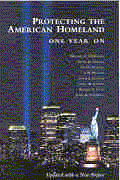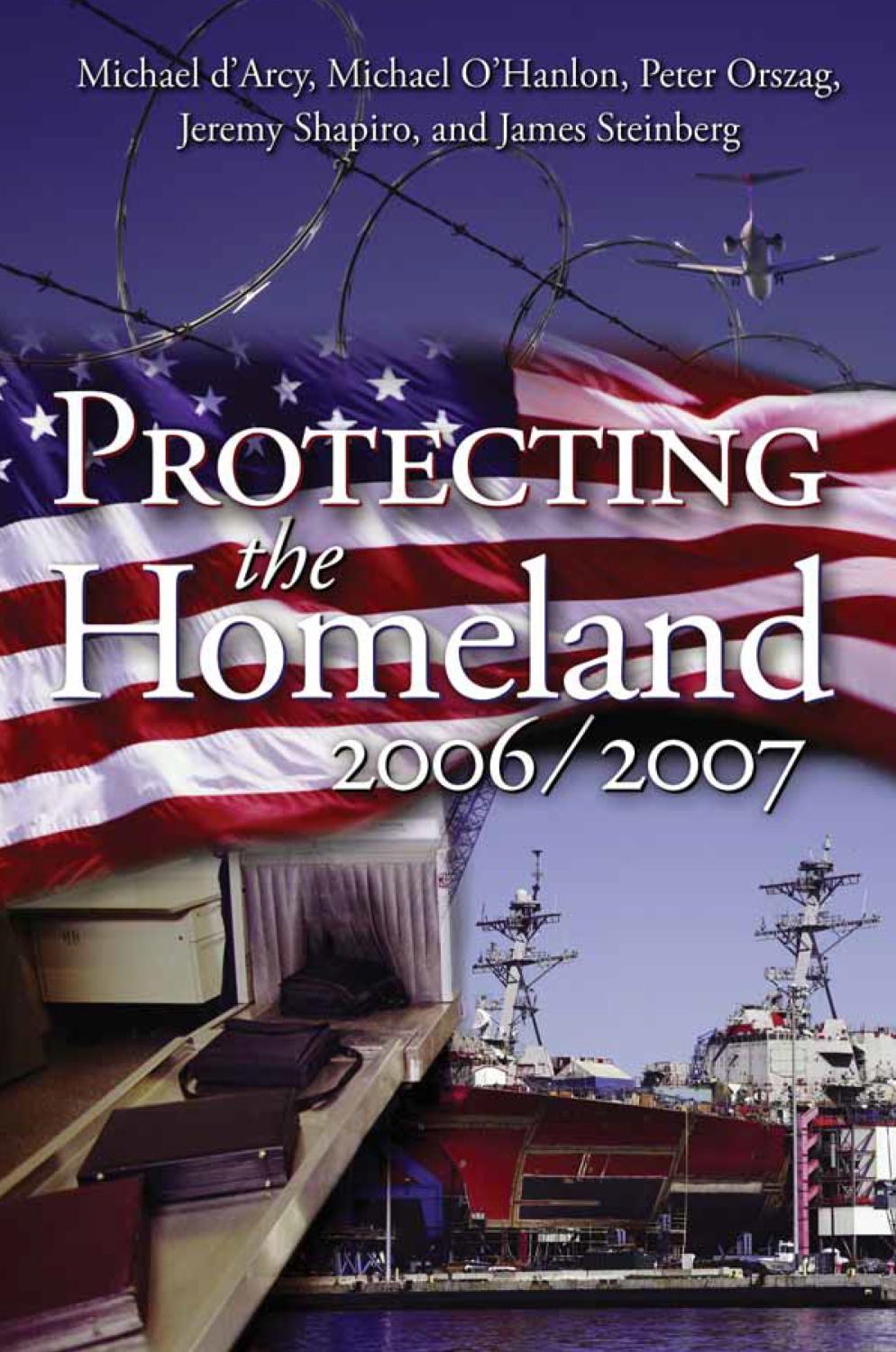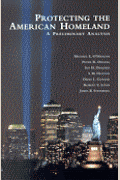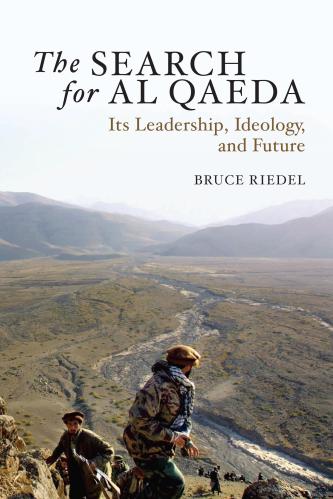


Book
Immediately after September 11, the Brookings Institution began a comprehensive, multidisciplinary project focused on the key policy challenge of these dangerous times—assessing and improving homeland defense. That intense effort produced...
Immediately after September 11, the Brookings Institution began a comprehensive, multidisciplinary project focused on the key policy challenge of these dangerous times—assessing and improving homeland defense. That intense effort produced Protecting the American Homeland, and it continues in this important new book. In Protecting the Homeland 2006/2007, Brookings foreign policy experts analyze current homeland security concerns and the adequacy (or inadequacy) of current policies designed to address them. The authors present both the big picture and the smaller components of homeland security policy that make up the whole. They make specific recommendations on intelligence reform, science and technology policy and the protection of critical infrastructure within the United States. They also look ahead to consider what dangers we should anticipate and plan for, recommending policies that will work to that end. One of the strands running through Protecting the Homeland 2006/2007 is the need to “stitch the seams” in our homeland security blanket through greater integration and coordination. The authors emphasize that the U.S. federal government must work together with key partners who have been insufficiently integrated into American homeland security activities to date. These actors include foreign governments, state and local government, and the private sector, and the coordination must occur in several different areas (e.g. border protection, finance, technology, intelligence). The U.S. government should not—indeed, it cannot—do it alone. By its very nature, homeland security is a problem that defies the usual bureaucratic boundaries. Effective homeland security policy demands intense collaboration on new issues and between organizations that have not traditionally needed each other. This book is of interest and importance to journalists, analysts, policymakers, scholars, and citizens concerned with protecting their homeland against terrorism and related dangers.
Related Books

Michael E. O’Hanlon, Peter R. Orszag, Ivo H. Daalder, I. M. Destler, David L. Gunter, James M. Lindsay, Robert E. Litan, James B. Steinberg
April 14, 2003

Michael E. O’Hanlon, Peter R. Orszag, Ivo H. Daalder, I. M. Destler, David L. Gunter, Robert E. Litan, James B. Steinberg
May 22, 2002

Bruce Riedel
February 19, 2010
Authors


Michael d'Arcy is the Science and Technology Fellow in Foreign Policy Studies at the Brookings Institution. Michael E. O'Hanlon is a senior fellow in Foreign Policy Studies at the Brookings Institution, where he holds the Sydney Stein Jr. Chair. His recent books include The Future of Arms Control (Brookings, 2005; with Michael A. Levi), Neither Star Wars nor Sanctuary (Brookings, 2004), and Crisis on the Korean Peninsula (McGraw Hill, 2003; with Mike Mochizuki). Peter R. Orszag is director of the U.S. Office of Management and Budget under President Obama. His previous positions include director of the Congressional Budget Office and Joseph A. Pechman Senior Fellow in Economic Studies at the Brookings Institution. He is also a research professor at Georgetown University and a codirector of the Tax Policy Center. He served as special assistant to the president for economic policy during the Clinton administration. Jeremy Shapiro is special advisor to the assistant secretary of state for Europe and Eurasia. Previously, he was the director of research for the Center on the United States and Europe at the Brookings Institution and is coauthor (with Philip Gordon) of Allies at War (McGraw-Hill, 2004). James B. Steinberg is U.S. deputy secretary of state. Previously, he was dean of the LBJ School of Government at the University of Texas–Austin. A former director of Foreign Policy Studies at the Brookings Institution, he was deputy national security adviser to President Clinton from 1996 to 2000. He previously served as director of the State Department's Policy Planning Staff and as deputy assistant secretary of state, with responsibility for the Bureau of Intelligence and Research.